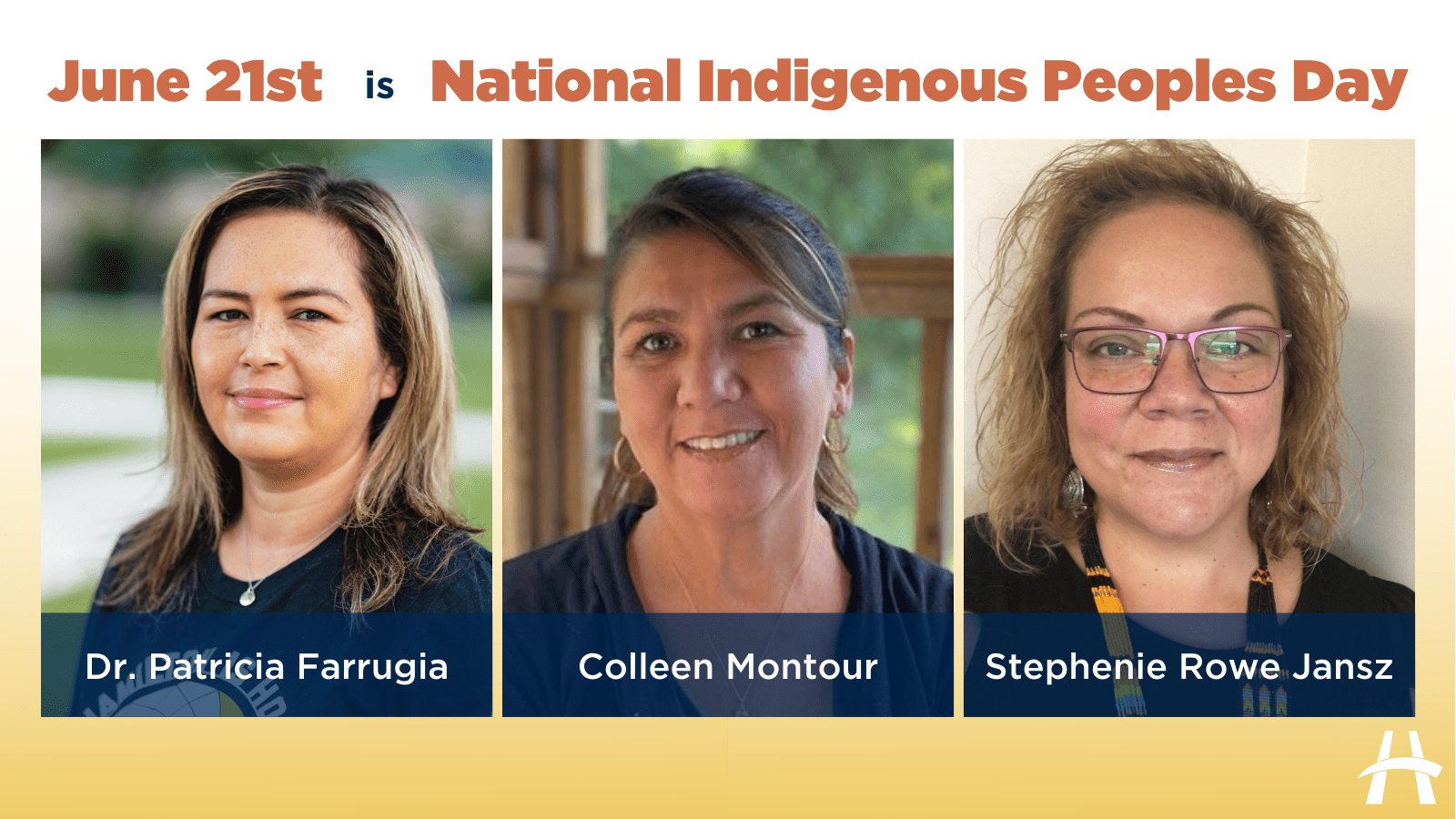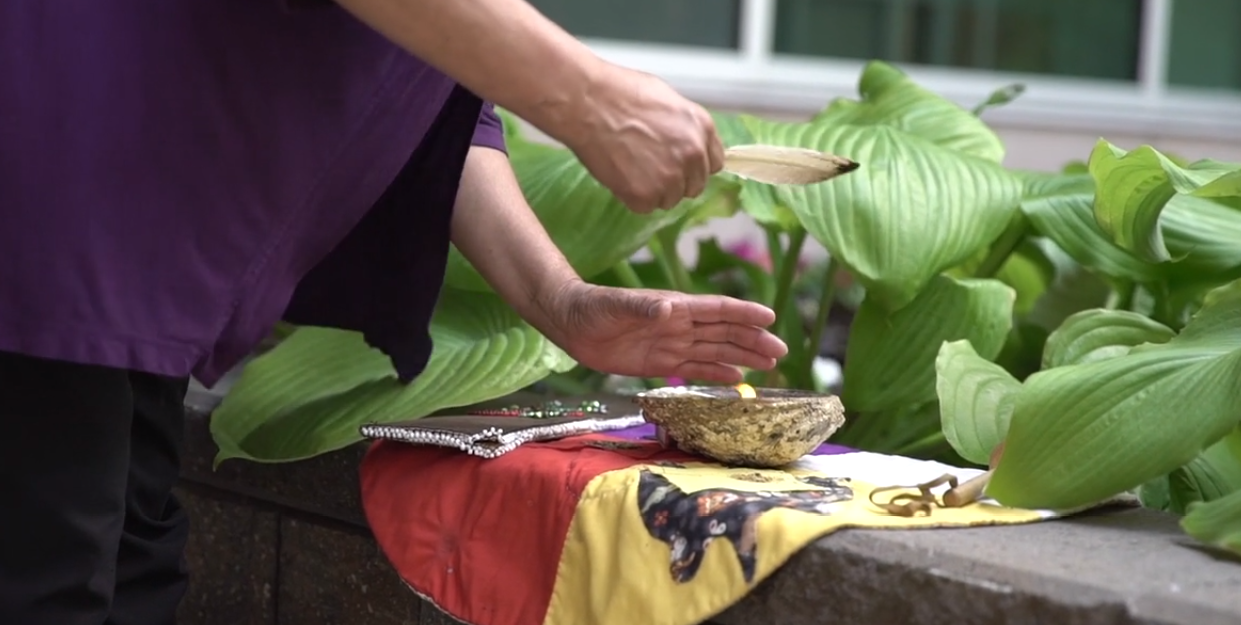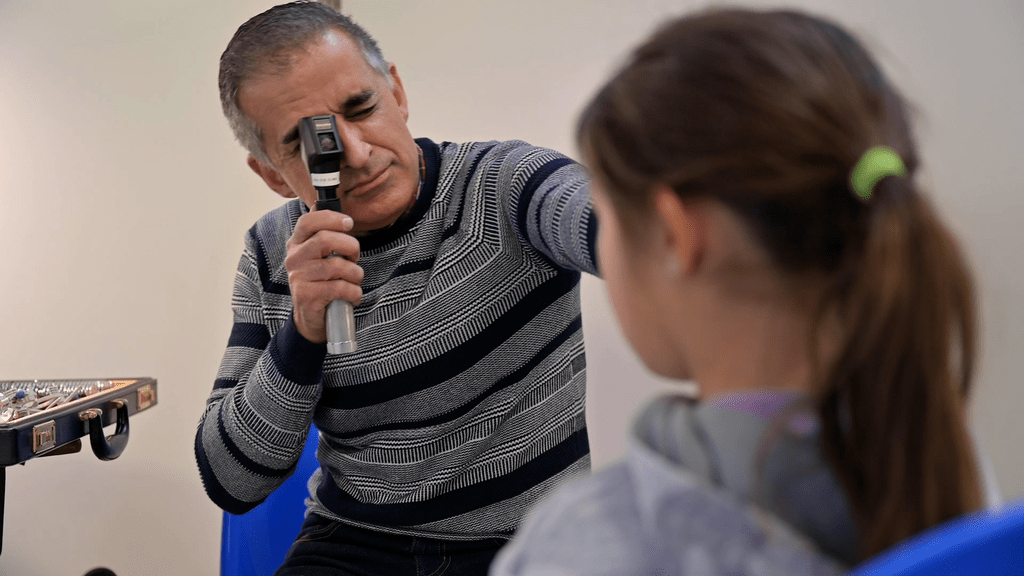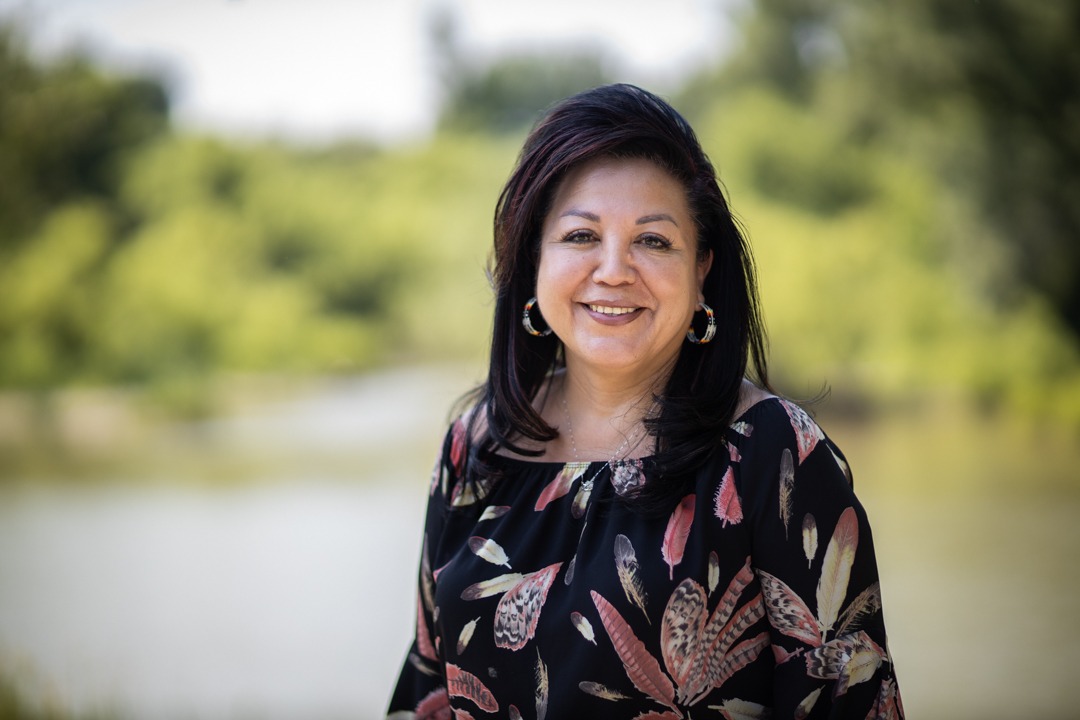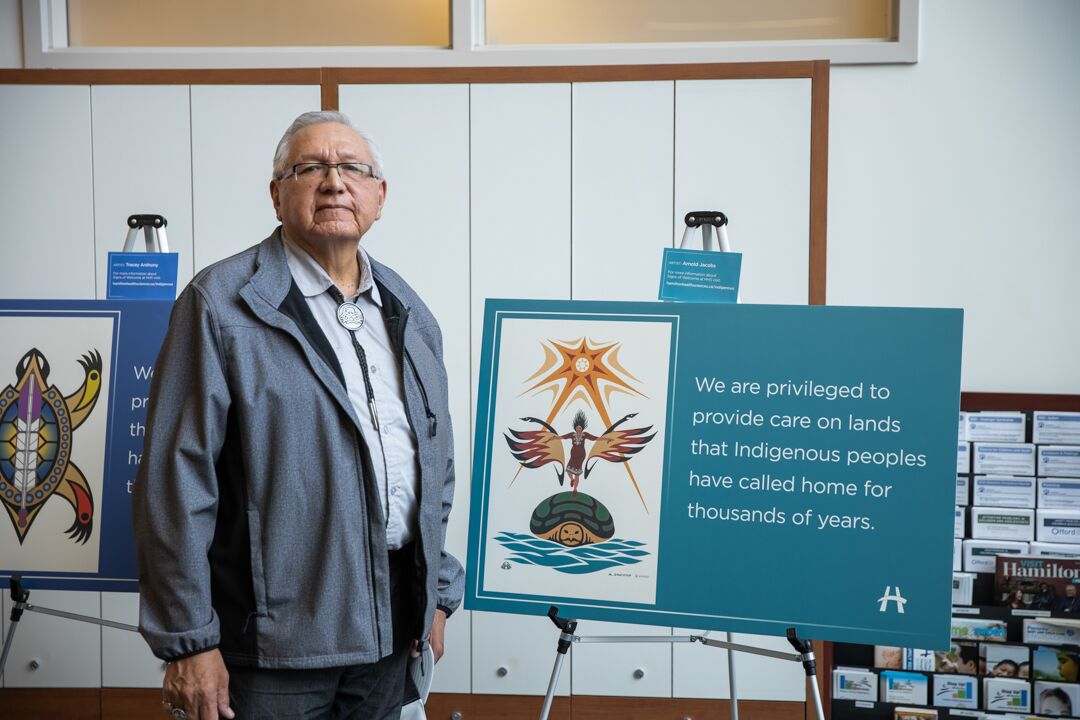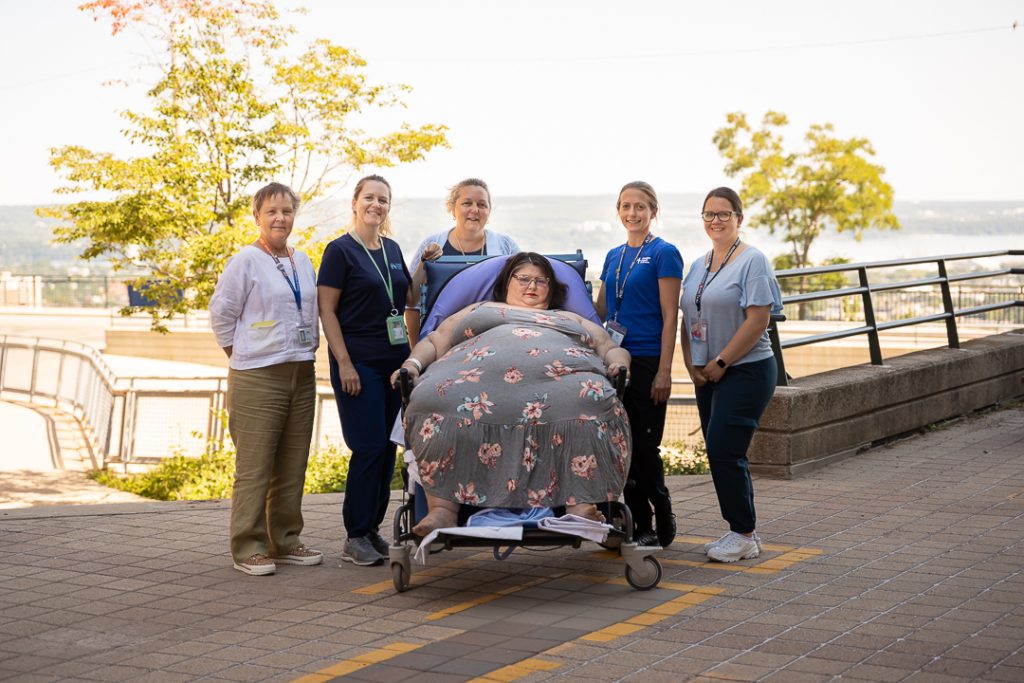
Smudging ceremony important to healing
The last nine months have been rough for Nicole (Nik) Bellamy. From a bout of pneumonia that landed her in the intensive care unit to catching COVID while in hospital, it’s added up to a very long stay at Hamilton Health Sciences’ (HHS) Juravinski Hospital. But with support from her care teams and her own determination, she’s making progress each day.
A key moment in Bellamy’s recovery journey was a recent smudging ceremony held in the hospital’s outdoor atrium overlooking the escarpment. Smudging is a traditional Indigenous ceremony involving the burning of sacred herbs.
“Smudging and ceremony are an important part of my health care, just like the physio.”
“Ceremony and traditional medicine are important, and also keeping traditions alive,” says Bellamy. “And being able to participate in traditional healing is important to me.”
Bellamy, 41, is a peer support worker for a national overdose response service at Grenfell Ministries and has been able to continue working by phone while staying in the hospital. Through Grenfell Ministries, Bellamy also coordinates a clean water program that offered assistance to the Six Nations Birthing Centre.
“I am a member of Oneida of the Thames,” says Bellamy. “But I don’t know my clan as my mother was adopted in the 1950s scoop. I am a type one bipolar and was self-medicating with drugs and alcohol for years. Part of my weight gain got worse as I came off drugs.”
Powerful experience
Bellamy is receiving care for obesity and related health issues such as limited mobility. Since being ill with pneumonia, she has not been able to walk around and so is bed-bound. Along with medical care, Bellamy receives care from physiotherapists, occupational therapists, dietitians and the psycho-spiritual care team, who helped to arrange the smudging ceremony.
“The team worked faithfully and consistently with Nicole so that she could eventually be transferred from bed into a chair and when that happened the first thing Nicole asked for was a smudging ceremony,” says Ann Vander Berg, psycho-spiritual practitioner. “She is well connected with her community and arranged a time herself. My role was to arrange a place, confirm with the Aboriginal Traditional Healer and ensure she had the supports she needed to go through screening and go to the patio at Juravinski Hospital for the ceremony.”
Verna Pillai is an occupational therapist who works with Bellamy to strengthen her body. She was also invited to observe and participate in the smudging ceremony.
“It was incredibly powerful to participate and witness the ceremony for Nicole,” says Pillai. “We all saw how motivating this was for her and how capable she is of setting and achieving her own goals. The ceremony was healing for all of us.”
Sue Campbell is an occupational therapy assistant and physiotherapy assistant on Bellamy’s care team. She sees the ceremony not only as an extension of Bellamy’s health care but also as a way to make the hospital seem less institutional.
“The smudging was important for us to help support Nicole in her community after generations of trauma,” says Campbell. “It’s important for our organization to support her cultural and spiritual practice. It was a deeply emotional experience and I’m grateful to have been invited.”
Personalized equipment and care
Pillai says that because of Bellamy’s needs, the team has had to locate and procure specialized equipment such as a ceiling lift, specialized sheets, a large bariatric chair, and a large walker. With these resources and a lot of hard work, Bellamy is working on balance skills, sitting on the bedside and progressing to standing. The team is also working with the HHS complex wheelchair and seating clinic to look at options for Bellamy’s eventual return to living in the community.
Prior to coming to the hospital, Bellamy lived at Indwell’s McQuesten lofts, where she was able to smudge in her apartment. Bellamy says the ceremony at the hospital definitely helped her mental and physical health.
“I felt a lot better. I hadn’t smudged in six months and I’m used to smudging almost daily in my own place. When I had been going to school at First Nations Technical Institute, we usually start the day with ceremony. Smudging and ceremony are an important part of my health care, just like the physio.”
Smudging ceremony video courtesy of Nik Bellamy

